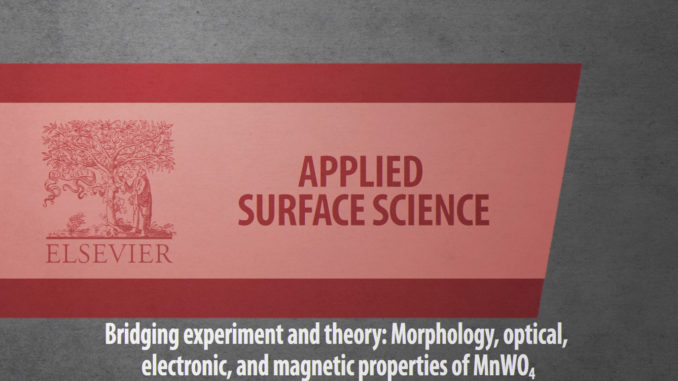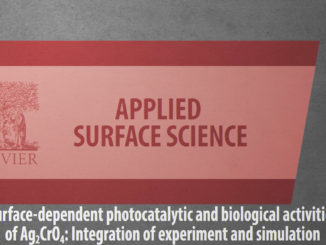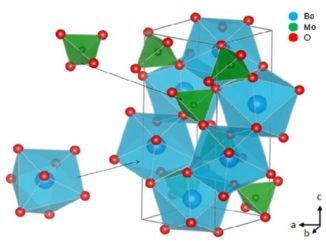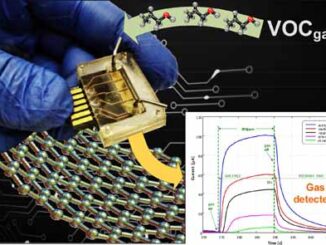
Bridging experiment and theory: Morphology, optical, electronic, and magnetic properties of MnWO4
Abstract: Manganese tungstate (MnWO4) compounds have gathered tremendous interest in the research community due to their wide range of applications. Herein, we show a comprehensive experimental, theoretical and computational study aimed at providing an in-depth understanding of the morphology as well as optical, electronic and magnetic properties of monoclinic MnWO4. In order to evaluate such properties together with the geometry and vibrational frequencies of these materials, first-principles calculations were used at the DFT level. The synthesis and analysis of these properties were then featured by (i) the composition, geometry, and electronic and magnetic structure of the exposed surfaces at the morphology based on the different numbers of unsaturated superficial Mn and W cations (local coordination, i.e., clusters) of each surface, and (ii) the determination of the energy profiles associated with the transformation process between different morphologies. Additionally, we used a combination of theories and simulations to link experimental results to a prediction of the corresponding properties. These system-specific findings at the atomic level provide a powerful insight for understanding and tuning optical/electronic/magnetic properties of MnWO4-based materials.
Author(s): Assis, M.; Tello, A.C.M.; Abud, F.S.A.; Negre, P.; Ribeiro, L.K.; Ribeiro, R.A.P.; Masunaga, S.H.; Lima, A.E.B.; Luz Jr., G.E.; Jardim, R.F.; Silva, A.B.F.; Andrés, J.; Longo, E.
Applied Surface Science
Published: 30 October 2022, Volume 600, 154081
DOI: https://doi.org/10.1016/j.apsusc.2022.154081
CDMF
The CDMF, hosted at the Federal University of São Carlos (UFSCar), is one of the Research, Innovation and Dissemination Centers (RIDC) supported by the São Paulo State Research Support Foundation (Fapesp), and also receives investment from the National Council Scientific and Technological Development (CNPq), from the National Institute of Science and Technology of Materials in Nanotechnology (INCTMN).




